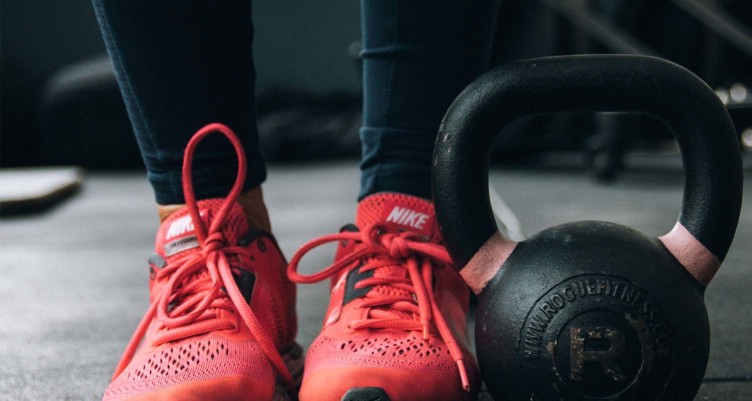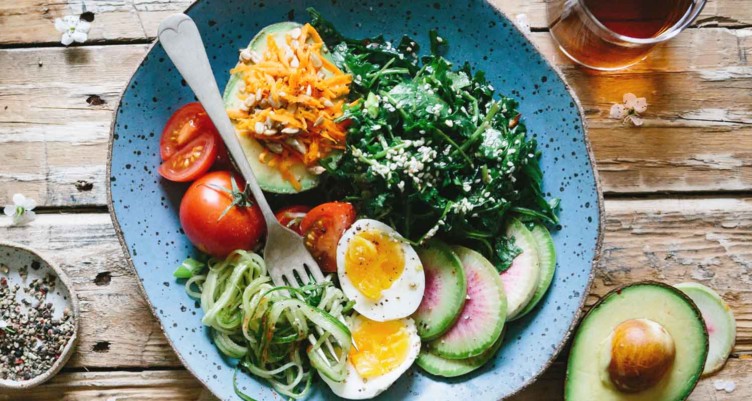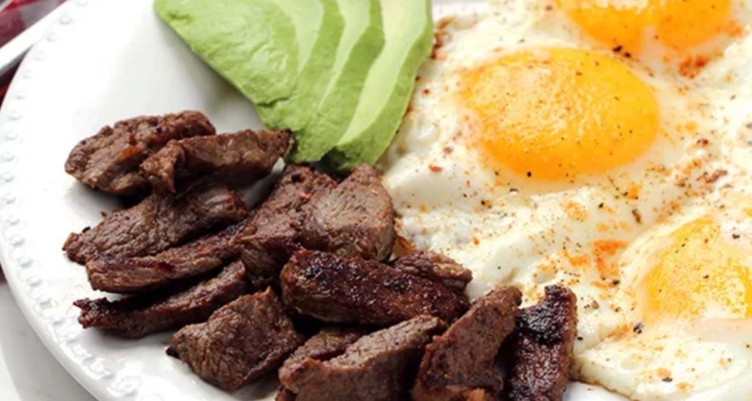Mens Low Carb Fat Burning Diet Meal Plan Bodybuilder
- If you associate building muscle with eating carbs, it's time to flip the script. Keto bodybuilding is both attainable and sustainable, as long as keto works for you.
- To follow a keto bodybuilding diet, stay within your keto macro ratio—but up your caloric intake. Eat enough protein and fat, and restrict carbohydrates to stay in ketosis.
- Not sure how to bulk up your keto bodybuilding meal plan? Keep reading for delicious keto meal ideas recommended by nutritionists.
Wondering how to build muscle on keto? Good question. After all, some people think the way to bigger, bulkier biceps means eating a high-carb diet. That line of thinking contradicts the standard keto diet, in which you typically aim for less than 50 grams of net carbs per day.
So, how do you do it? We spoke with Tara Garrison, a trainer, nutritionist and ketogenic diet expert, about keto diet benefits for bodybuilding. Get started with these tips, then check out delicious ideas to bulk up your keto bodybuilding meal plan for muscle gain.
Can you build muscle on keto?
A typical bulking diet is high-carb, and with good reason. Studies have shown that carbohydrate-heavy diets are a backbone of muscle building.[1] So, it might seem counterintuitive to think that you can still build muscle while significantly cutting your carb intake.
In reality, gaining muscle on keto is both attainable and sustainable for many people. With some small tweaks to traditional keto, you can bulk up while eating a high-fat diet. Below, we'll cover key tips and caveats to keep in mind.
Do you lose muscle on keto?
In short, maybe. When you first start out on your keto bodybuilding journey, you might initially lose some muscle and strength—but only temporarily.
If you've been following a carb-heavy diet, your body is used to burning carbs for fuel. On the ketogenic diet, you want to eat the right proportions of food that will put you in ketosis: the metabolic state in which you burn fat for fuel.
It may take a bit of time to transition to using ketones as your new fuel source, and during that transition, your energy and performance in the gym may take a hit.[2] Fortunately, the transition phase is temporary (anywhere from a few days to a week).
Tips for keto bodybuilding success

We'll dig into more specific guidelines for a keto bodybuilding diet below. But before you start building muscle, you have to start with a strong foundation so your body is in a place to build muscle first—regardless of the type of diet you follow.
Train for strength
Eating all the steak in the kitchen won't build muscle unless you're putting in the work to stimulate muscle growth.
Broadly speaking, you should follow a strength program with progressive overload—a method of strength training in which you gradually increase the stress placed up on your muscles in order to trigger muscle growth (aka hypertrophy).
How do you trigger hypertrophy? Increase the weight you lift over time, to start. It's a good idea to work with an experienced trainer to develop a well-planned muscle building program that works for you.
"For weightlifting, keto pairs best with strength work, meaning lower rep ranges, heavy weight and longer rest intervals," Garrison says—for example, you might lift three sets of six to eight repetitions of heavy weight with 1-2 minutes rest between sets.
Heads up if you train for muscular endurance and lifting at higher rep ranges, like 12-15 reps per set: Don't be surprised if you gas out when you're first transitioning to keto bodybuilding.
At higher rep ranges, your body converts muscle glycogen into ATP for energy. Glycogen is a form of fast-burning energy from glucose (carbohydrates)—but on keto, you'll have less glycogen available (because…carbs). If this happens to you, try increasing your dietary fat intake to create more available energy for your cells. You can also experiment with upping your carb intake.
Eating well for building muscle on keto
In order to start building muscle on keto, you need to eat more food. That's because your muscles need fuel to grow.
Muscle is a metabolically active tissue, which means your body uses a lot of energy to maintain those gains. You need to eat more calories so your body has all the nutrients it needs. On the keto diet, your primary energy source comes from your dietary fat intake—but you need to eat enough protein, too.
Protein is the building block of muscle. Without enough protein in your diet, your muscles won't have the material they need to bulk up, and your body won't have the energy it needs to perform optimally. Focus on protein sources that have all nine essential amino acids (think high-protein foods like meat, fish, eggs, as well as supplements like a daily collagen protein for energy).
"Calories in vs. calories out" is a common concept in weight management. We view this model as too simplistic because it ignores the fact that all calories are not created equal. You're going to get more nutritional value out of a plate of grass-fed protein and greens than you would highly processed foods. So, when we say "eat to build muscle," we mean you should focus on eating more nutrient-dense whole foods that agree with your system, and they should be as high-quality as possible.
Prioritizing recovery is key when bodybuilding on keto
Resistance training is stressful, but it's the good kind of stress. Strength training literally tears your muscle fibers. Muscle growth happens when your body repairs that tissue. And like any form of stress, you have to give your body the time, care and nutrients to properly recover.
Chronic stress—whether it's stress from overtraining, lack of sleep or mental overload—can interfere with your regular hormone function, sleep quality and energy. And if you want to trigger muscle growth, you need your body to feel safe and equipped to build metabolically active tissue. Too much stress and your body will stay in fight-or-flight mode, which is bad news if you're looking for fat loss: Stress can cause your body to hold onto body fat, impairing your ability to see results from exercise and feel your best.
How do you prioritize recovery when you're bodybuilding on keto? Eating enough food is one way. But you also want to focus on lifelong habits for overall wellness like drinking plenty of water, getting enough quality sleep and managing your stress. Dieting doesn't work if your body doesn't feel safe and fueled.
Need help unwinding at the end of the day? Here's an easy win: Bulletproof Sleep Gummies combine plant-based melatonin and GABA to help you relax and fall asleep faster.†
Keto bodybuilding diet tips

Let's pivot back to keto, specifically. It's possible to build and maintain a strong physique on the keto diet. In fact, studies focusing on resistance training men show that the keto diet can be used to build muscle and burn fat, without interfering with strength performance.[3] [4]
One caveat for women: A 2020 study of 21 strength-trained women found that the keto diet helps burn fat, but may not be as effective in increasing lean body mass.[5] If you're a woman who struggles with building muscle on the keto diet, you may want to experiment with a higher-carb style of eating, like carb cycling or targeted keto, which we'll talk about below.
Generally speaking, keto bodybuilding diet principles still follow the basic guidelines we outlined above, but with a greater emphasis on your macronutrient breakdown—aka the ratio of protein, fats and carbohydrates in your diet.
Eat more of what you already consume
You want to keep carbs low to maintain the fat-burning state of ketosis—but you also want to eat at a caloric surplus to build muscle. We recommend using a food tracker to understand how much food you're actually eating and whether you're hitting your macronutrient goals.
To build muscle on keto, Garrison recommends that at least 30% of your total calories should come from quality proteins like whole, unprocessed animal proteins.
The standard ketogenic macro ratio is 75% fat, 25% protein and 5% carbs. Garrison recommends a slightly different ratio for keto bodybuilders to create a high-protein keto diet. "Start at 65% fat, 30% protein and 5% carbs, keeping carbs under 20 total grams to begin with the first week, and then slowly titrating up in carbs until you find your optimal level where you feel best while still maintaining ketosis," Garrison says. "Your carbs should mostly be from vegetables."
Treat keto macro ratios as starting points. Diets are incredibly individualized, and you might need to adjust your calorie intake and macro breakdown, depending on how you feel. For instance, if your energy is tanking during your workouts—and you've already gotten through the keto flu—your body might be asking for more energy.
Here are two possible solutions:
- Eat more quality fats: When you're in ketosis, your body burns fat for fuel. Make sure you're giving your body what it needs with quality fat sources like Brain Octane C8 MCT Oil, which quickly converts into ketone energy and raises ketone levels.
- Increase your carb intake: If you're dragging and notice your performance is suffering during your workouts, your body might be asking for more carbs. One approach that works well for many people: cyclical keto, in which you follow a low-carb diet most of the week, then have a carb refeed day to replenish your glycogen stores.
Curious about eating more carbs while staying in ketosis? Garrison is a fan of a style of keto called the targeted ketogenic diet, which can help fuel exercise performance and enhance muscle growth.
On targeted keto, you eat 20-30 grams of quality carbohydrates after lifting—possibly even up to 50 grams of carbs for people with very fast metabolisms. "This is best paired with lean protein to create an insulin response that refills muscle glycogen and sends amino acids into the muscles to begin muscle recovery," Garrison says. "Then, eat a normal ketogenic diet for the rest of the day."
Up your protein intake to build muscle on keto
On a keto bodybuilding meal plan, get sufficient protein to increase muscle mass through a process called protein synthesis.[6] A 2011 review of research found that the ideal amount of protein for bodybuilders was 0.82 grams per pound of body weight.[7]
That news might seem surprising if you associate bodybuilding with lifters pounding protein shakes after exercise. In reality, the best way to gain muscle on keto is to aim for a more moderate protein intake and prioritize quality fat.
Finding your ideal protein intake will require some self-experimentation. The "right" amount of protein is different for everyone, depending on factors like your lean muscle mass, weight and gender. As a rule of thumb, start with 0.82 grams per pound of body weight—so if you weigh 150 pounds, you would want to consume at least 123 grams of protein per day.
You might have heard that eating too much dietary protein on a keto diet can actually kick you out of ketosis through a process called gluconeogenesis, in which your body converts protein to sugar. The good news: This issue isn't as significant as once thought, Garrison notes.
Preferably, your protein intake comes from whole foods, and supplementation fills in the gaps. To better understand your protein needs on a keto diet, we like Precision Nutrition's Ultimate Macro Calculator, which has specific recommendations for keto dieters. For a more personalized macro breakdown, connect with a keto nutritionist.
The best keto foods for bodybuilding
If you've dabbled with dirty or clean keto, you already know the quality of your food makes a big difference in how you feel. To support your performance with the best nutrients, we recommend bulking up with the highest-quality sources of fat and protein you can find. Don't forget your nutrient-dense vegetables, too. That means foods like:
- Grass-fed beef and lamb
- Pasture-raised eggs
- Wild-caught fatty fish
- Grass-fed, undenatured whey protein
- Pasture-raised pork
- Grass-Fed Ghee
- Grass-fed butter
- MCT oil
- Coconut oil
- Grass-fed animal fat
- Nuts, such as cashews and pistachios
- Low-carb vegetables like broccoli, Brussels sprouts and dark leafy greens
Keto bodybuilding meal plan ideas

But how do you put it all together in a keto bodybuilding meal plan filled with low-carb, high-fat, protein-rich meals? Below, you'll find a sample keto diet meal plan for bodybuilding, based on recommendations by nutritionists. Use this as inspiration and adapt to your dietary needs—for example, hold the cheese and sour cream if you aren't friendly with dairy.
Breakfast
Spinach omelet: 4 large eggs, 1 cup spinach, 1 oz. feta cheese, cooked in 1/2 Tbsp. butter
- Serves: 1
- Nutritional information: 418 calories, 31g fat, 31g protein, 3g carbs
- Macronutrient ratio: 68% fat, 30% protein, 2% carbs
Baked egg bites: 200 grams diced bacon, 2 bunches chopped scallions, 1 rosemary sprig, ½ finely diced zucchini squash, 1 tbsp ghee, 8 pasture-raised eggs, 2 scoops collagen protein
- Makes: 5 egg bites. We recommend enjoying 2
- Nutritional information: 182 calories, 10.6g fat, 19g protein, 2.3g carbs
- Macronutrient ratio: 54% fat, 42% protein, 4% carbs
Lunch
Taco salad: 2 cups chopped romaine, 8 oz. 85/15% taco-seasoned ground beef, 4 Tbsp. salsa, 1 Tbsp. sour cream, 1/3 cup shredded Mexican-blend cheese
- Serves: 1
- Nutritional information:651 calories, 46g fat, 50g protein, 8g carbs
- Macronutrient ratio:64% fat, 31% protein, 5% carbs
Spicy tuna sushi burrito: ½ cup cubed, raw tuna (sub salmon if concerned about mercury), ¾ cup cooked and chilled cauliflower rice, 1 tsp MCT Oil, ¼ avocado, 1 julienned/thinly sliced cucumber, 2 tsp green onions, 1 tsp sesame seeds, 1 tbsp mayonnaise, 1 tsp sriracha, 1 nori (seaweed) sheets
- Serves: 1
- Nutritional information: 438 calories, 30g fat, 32g protein, 12g carbs
- Macronutrient ratio: 42% fat, 20% protein, 8% carbs
Dinner
Steak and vegetables: 8 oz. New York strip steak, 6 oz. asparagus, 1 Tbsp. butter
- Serves:1
- Nutritional information:642 calories, 47g fat, 50g protein, 6g carbs
- Macronutrient ratio:65% fat, 31% protein, 4% carbs
Lamb burgers: 1 lb. grass-fed ground lamb, ½ cup red onion, 1 crushed garlic clove, 1 tbsp ghee, lettuce leaves to wrap burgers
- Makes: About 6 burger patties
- Nutritional information per burger patty: 237 calories, 20g fat, 13g protein, 1g carbs
- Macronutrient ratio: 76% fat, 22% protein, 2% carbs
Keto diet recipes for bodybuilding
Looking for more ideas? Here are a few of our favorite high-protein Bulletproof recipes. Many of these recipes work well for keto meal prep, which makes it that much easier to stick to your keto bodybuilding diet.
- Bulletproof Breakfast Buddha Bowl
- Chocolate Coconut Keto Smoothie Bowl
- Bacon and Zucchini Muffins
- Keto Chopped Salad With Quick Creamy Dressing
- Broccoli Leek Protein Bowl With Salmon
- Seared Steak With Ghee
- Slow-Cooked Lamb Barbacoa
- Keto Shrimp Scampi
Takeaway
You've been wanting to try keto, but you're worried the diet might negatively impact your muscle gain or strength. Rest assured that people can still follow the keto diet for muscle gain. Remember, a solid bodybuilding routine is only part of the picture. Make sure your body is in a place to bulk by building a strong foundation for strength: up your calories, pay close attention to your macros and prioritize sleep and recovery.
Want more recipes?
Subscribe to our Recipe Lab newsletter where deliciousness is delivered to your inbox every week!
This article was originally written by Julie Hand. It was recently updated by Rebecca Paredes.
Mens Low Carb Fat Burning Diet Meal Plan Bodybuilder
Source: https://www.bulletproof.com/diet/keto/keto-bodybuilding-meals/

0 komentar:
Posting Komentar